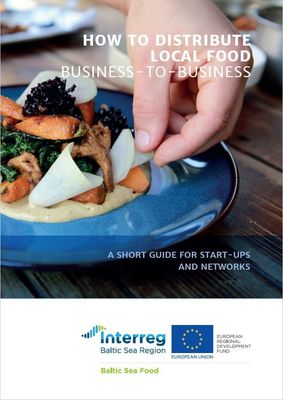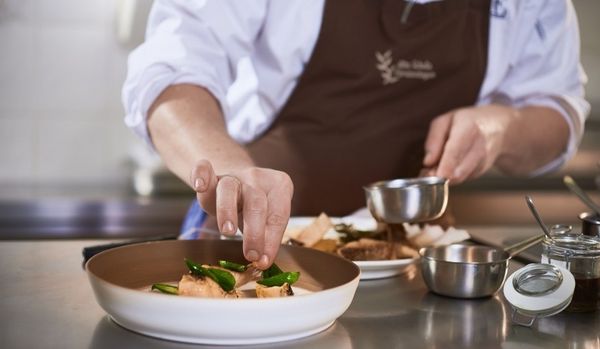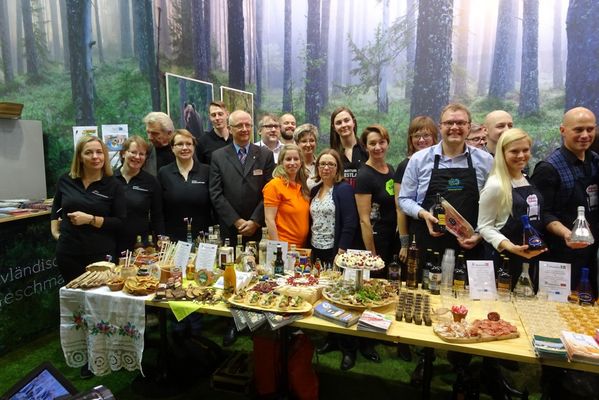Local food producers and farmers in the Baltic Sea Region´s rural areas are mainly small family businesses, who prefer to organize the sales through face-to-face contact and by phone, mostly to end consumers (B2C). In many regions, they have established local food networks to cooperate for marketing their products on a larger scale and information exchange because organising product sales and logistics is a time consuming and expensive process. Those local food nets have highlighted the need for cost-efficient distribution solutions for delivering food products to business customers such as local restaurants, tourism farms, shops, accommodation businesses and catering industry (B2B). Therefore, the objective of the project is to design a sustainable and transferable business model for B2B distribution that local food nets in rural areas of the Baltic Sea Region can apply.
The Baltic Sea Food project that started in October 2017 involves 14 organizations from 10 countries around the Baltic Sea: Lithuania, Latvia, Estonia, Finland, Sweden, Denmark, Norway, Germany, Russia and Poland. Lead partner is The Ministry of Rural Affairs of the Republic of Estonia.
The main expected result of this 3 year-long project, funded by the Interreg Baltic Sea Region Programme, is an improved capacity of national and regional organisations in the Baltic Sea area to support local food networks in B2B business model development and process innovation. During the project local food nets, food producers and farmers can profit from seminars and coaching on marketing, logistics, distribution, storage and labelling topics.
According to those intentions, the project already produced significant output: an initial status quo mapping in 2018 involved 189 local food networks and distributors and resulted in a report of existing local food distribution solutions and forms of cooperation in the food sector and has been used in composing the branch specific B2B business model. The business model addresses established local food networks and distributors already selling their products business-to-consumer (B2C). It enables them to create new sales channels for business-to-business (B2B) by sharpening their value proposition and their target customer segments, by cooperation and by increasing the value of their food products in a shorter supply chain. Thus, they will be able to meet the demands and expectations of their customers looking for special and premium food products of local origins.
The business model that also includes recommendations for e-platforms suitable for online B2B trading was presented to a broad public in all the participating countries and then summarised in a handbook, available in each national language. The handbook illustrates the most important topics for B2B business development and gives many best practices examples from the Baltic Sea area.
In 2020, the focus of the Baltic Sea Food project is testing the B2B business model in national pilot regions. In all ten countries around the Baltic Sea pilot organisations (farmer cooperatives, NGO's, private companies etc.) start or develop services targeted to business clients (hotels, restaurants and catering industry / HoReCa, municipal clients etc.). For the piloting, each pilot region has prepared an operational plan describing different solutions for product and service design, ordering, logistics, storage etc. most applicable for that particular region.
In eight countries an e-solution will be developed or rolled out, which facilitates the communication between producers, distributors and business clients. During the summer, partners will ask their pilot organisations for first feedback and lessons learned from piloting. This evaluation process will continue until September 2020, when the closing conference will be held in Tartu, Estonia, introducing the results of the project and latest trends in using local food in the HoReCa sector, by municipalities and other business clients of local food networks.
The survey, the business model, the handbook and the operational plans are publicly available on the project´s main website www.balticseaculinary.com/baltic-sea-food-project and on the national project websites.
For further information, please contact the lead partner or their management agency:
Ministry of Rural Affairs of the Republic of Estonia
Kerli Nõges
kerli.noges@agri.ee
phone +372 6256560
Silja Lehtpuu
Juhatuse liige
Gravitas Consult OÜ
phone +372 5157724
silja.lehtpuu@gravitas.ee





